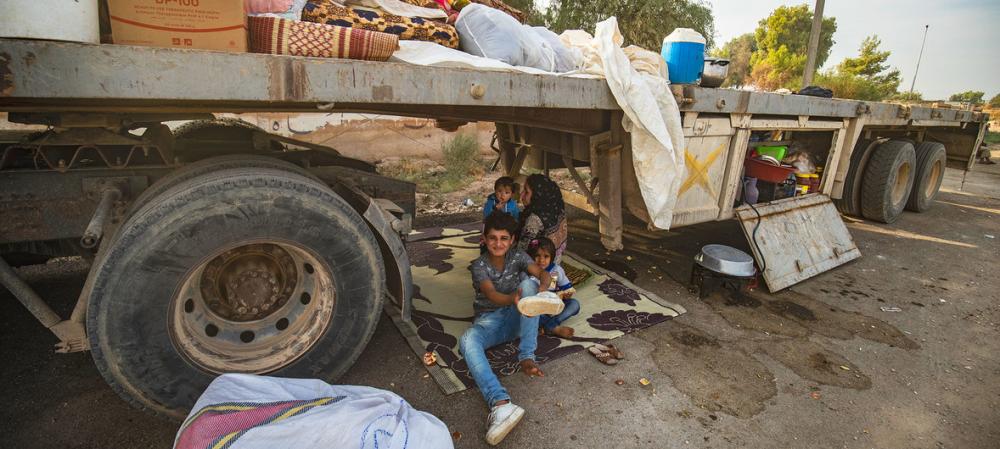Just Earth News | @justearthnews | 15 Oct 2019

New York: The ongoing Turkish military incursion in northeast Syria could unintentionally lead to the release of scores of people associated with the terrorist group ISIL, the UN Secretary-General fears.
António Guterres called for an immediate de-escalation of the fighting which has generated many civilian casualties and displaced up to 160,000 people in less than a week.
“He also notes with serious concern that the current military operations could lead to the unintended release of individuals associated with ISIL, with all the consequences this could entail,” according to a statement issued on Monday by his spokesperson.
Kurdish militia have been holding holding more than 12,000 suspected ISIL members in prisons in northeast Syria, according to media reports.
The Turkish military offensive was launched last Wednesday, just days after the United States announced it was withdrawing its troops from the region.
US forces had long been working with Kurdish militia in northeast Syria to root out ISIL. Turkey regards the Kurdish militia as terrorists.
International media report that the Kurdish forces have struck a deal with the Syrian Government which will allow national forces into the area.
The UN chief has underlined the need for sustained and safe humanitarian access to people in need. He also emphasized that civilians must be protected.
The UN humanitarian affairs office, OCHA estimates that the military assault has so far generated between 150,000 to 160,000 “population movements”, with more expected.
Call for humanitarian access
In addition to the displacement, humanitarians are concerned about the situation of some 13,000 internally displaced people (IDPs) living in the Ein Issa camp in Raqqa governorate.
It is among camps in three locations housing more than 100,000 displaced people, mainly women and children “with presumed links to ISIL fighters”, according to the Independent International Commission of Inquiry on the Syria, appointed by the UN Human Rights Council.
OCHA said reports indicate that although a number of residents have fled the camp, most remain behind.
The UN is calling for immediate protection of the camp, alongside guarantees of safe and unhindered passage for the IDPs to leave for the provincial capital, also called Raqqa, or other areas.
People also have been evacuating from Mabruka camp, located in neighbouring Al-Hasakeh Governorate in the far northeast corner of Syria, where around 19 families remain.
“During the morning of 13 October, a truck rented by IDPs to leave Mabruka hit a landmine before reaching the camp, wounding the driver. As a result, the trucks were unable to reach the camp to transfer people out,” OCHA said in its latest Syria update.
Impact on health care
As shelling continues in the border city of Quamishli, also in Al-Hasakeh governorate, the UN and its partners are increasingly concerned about the security of staff on the ground. OCHA reported that international humanitarian partners have been forced to evacuate personnel and relocate some operations to safer areas away from the border.
The insecurity is also having an impact on the already weakened health services in northeast Syria, the World Health Organization (WHO) informed.
Two national hospitals, three field hospitals as well as health centres and health facilities at IDP camps are either out of commission or offering limited services. Additionally, some health partners have also suspended their services
WHO is working to respond to needs during what it described as “this chaotic and fast-moving situation.”
The UN health agency and partners have pre-positioned thousands of medical treatments, vaccines and trauma medicines at a hub in Qamishli, with thousands more being airlifted this week.